Search
 News
News
UCSF Health Reaches 15,000 Robotic Surgeries
UCSF Health has the busiest robotic surgery program in the UC health system and is the leading academic medical institution for robotic surgeries in the western U.S. Video
Video
Advances in Obesity Medicine: Better Bariatric Surgery Options and Outcomes
With obesity affecting 40% of the U.S. population, bariatric surgeon Jonathan Carter, MD, reviews the devastating health effects of excess body fat and contends that clinicians can no longer sidestep difficult conversations about weight management.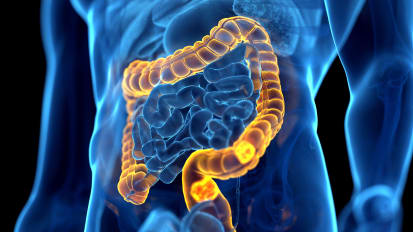 News
News
UCSF Surgical Oncologists Present Clinical Findings at International Conference
The latest advances in surgical cancer care and research were showcased at the Society of Surgical Oncology’s (SSO) Annual Meeting, the International Conference on Surgical Cancer Care. The meeting was held in Boston, from March 22 – 25, 2023. Document
Document
UCSF Bariatric Surgery Center
UCSF Bariatric Surgery Center News
News
UCSF Health Reaches 20,000 Organ Transplants
UC San Francisco surgeons have performed the health system’s 20,000th solid organ transplant, making it just the third in the nation to reach that milestone. News
News
UCSF Launches Initiative to Address Disparities in Pulse Oximetry Performance
This project seeks to improve accuracy for patients with darker skin pigmentation. News
News
UCSF Develops First of Its Kind Robotic Surgery Trial in Partnership with FDA
UCSF Health is recruiting patients for the only FDA-approved study of the use of single port robotic technology for colorectal surgery in the United States.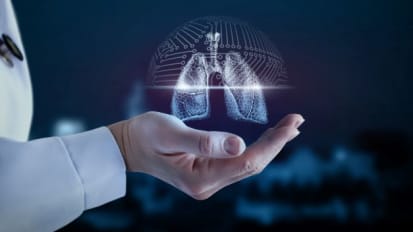 Video
Video
Lung Transplant Candidates: Shining a Light on UCSF’s Evaluation Process
In this short presentation, pulmonologist Jeffrey A. Golden, MD, describes how the specialists of the UCSF Lung Transplant Program work together to ensure their patients are likely to succeed, with a focus on factors that can make or break survival prospects.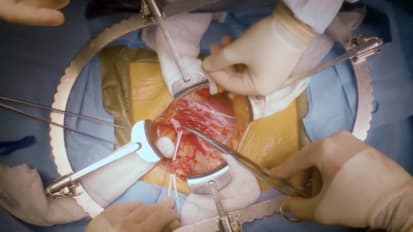 Video
Video
Living Donor Renal Transplant
In this narrated surgical video, Chris Friese, MD, performs a right laparoscopic donor nephrectomy. News
News
UCSF Lung Transplant Patient No. 1,000 Looks Ahead to More of the Good Life
Hospital Innovations Boost 3-Year Survival From 50% in 2001 to 90% 20 Years Later News
News
Endoscopic Removal of Benign Complex Colorectal Lesions Improves Patient Outcomes
Endoscopic mucosal resection (EMR) is a safe and effective alternative to surgery for benign complex colorectal lesions, according to research led by UCSF gastroenterologist Tonya Kaltenbach, MD. News
News
3D Facial Analysis Shows Biologic Basis for Gender-Affirming Surgery
In order to validate surgical decisions for gender-affirming facial surgery, researchers from the UC San Francisco and the University of Calgary set out to quantify the effect of sex on adult facial size and shape through an analysis of three-dimensional (3D) facial surface images.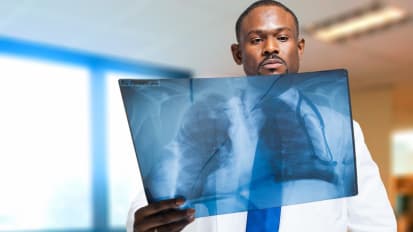 Video
Video
Lung Cancer Screening: Who, How and When to Refer
†horacic radiologist Brett M. Elicker, MD, and thoracic surgeon Johannes Kratz, MD, present about current lung cancer screening guidelines: who, how, and when to refer.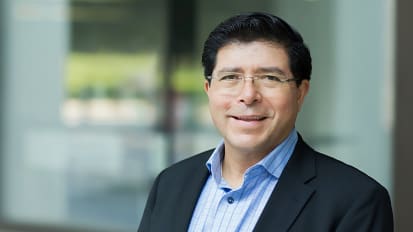 News
News
Pancreatic Cancer Patient Exceeds Life Expectancy After Complex Whipple Procedure at UCSF
A team of UCSF surgeons devised a successful reconstruction approach during a complex Whipple procedure in a 69-year-old man with locally advanced pancreatic adenocarcinoma. Document
Document
Liver Transplant Program and Referral Information
With more than 13,000 people in the United States with end-stage liver disease awaiting a liver transplant,UCSF has made liver transplantation services a high priority.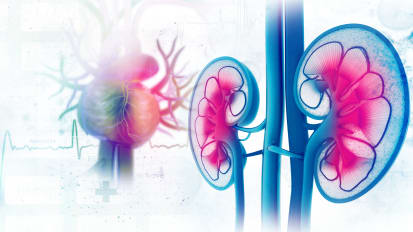 Document
Document
Living Kidney Donation
The UCSF Connie Frank Transplant Center continues to explore new options, such as advanced donation vouchers, to provide patients who have end-stage renal disease (ESRD) the opportunity for a living donor transplant.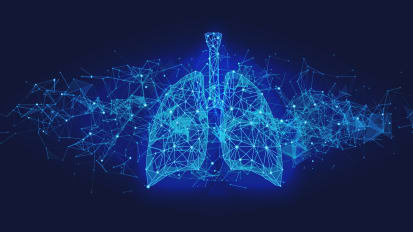 News
News
Lung Transplant Outcomes at UCSF Among the Nation’s Best
For nine consecutive years, the UCSan FranciscoLung Transplant Program has achieved significantly higher-than-expected survival rates following transplant surgery. It is the only lung transplant program in the country with this record.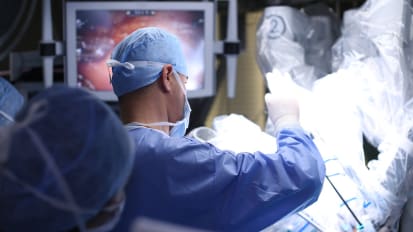 Video
Video
How Technology, Human Values and New Scrutiny of Old Methods Are Improving Cancer Outcomes
Three surgical oncologists offer exciting news on hepatobiliary, thyroid and breast cancers. First up is a look at benefits of minimally invasive robotic surgery for rectal cancers; regional therapy for metastatic GI cancer; 3D virtual surgical planning; and biomarkers for pancreatic cysts. Video
Video
Know Your Thyroid: Here’s Help With Understanding Nodules and Cancer
Thyroid disease is increasingly common. In this video, UCSF specialists clearly explain the basics of thyroid nodules and thyroid cancer, helping patients make sense of their treatment options, from monitoring to surgery to radioactive iodine.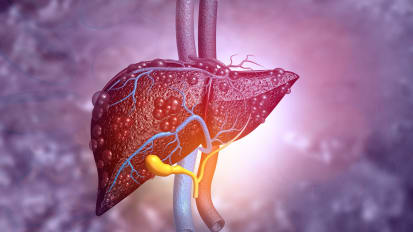 Video
Video
Update on Liver Lesions: What Works in Managing HCC
Based on clear metrics, transplant hepatologist Neil Mehta, MD, presents diagnostic criteria for hepatocellular carcinoma, then shows how UCSF’s HCC team reaches decisions on treatment for individual cases – with plans ranging from resection or ablation to downstaging drugs and transplantation.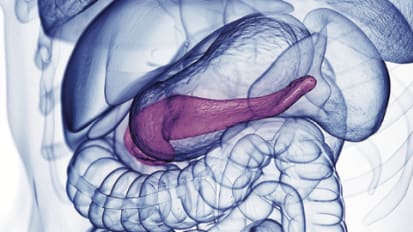 Document
Document
Total Pancreatectomy and Islet Auto-Transplant Clinic
UCSF is one of the few academic medical centers in the United States to offer islet auto-transplantation to minimize diabetes after total pancreatectomy.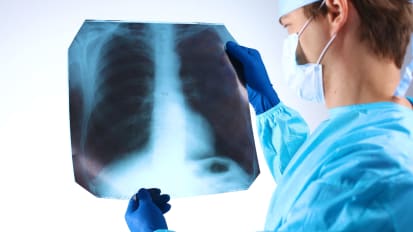 Document
Document
Lung Transplant Program
For nine consecutive years, the UCSF Lung Transplant Program has had significantly higher-than-expected post-surgery survival rates — the only program in the country with this record.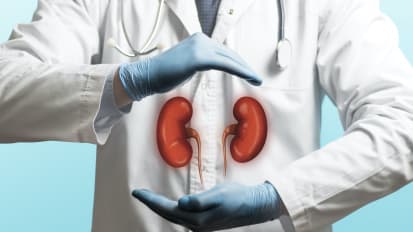 Document
Document
Adult Kidney Transplant Program
UCSF's multidisciplinary transplant team is part of the largest paired kidney registry in the U.S., which provides access to living donor transplantation for incompatible pairs. Video
Video
Adrenal Tumors and Posterior Retroperitoneoscopic Adrenalectomy (PRA): A Case Study
Sanziana Roman, MD, an endocrine surgeon, discusses a patient’s treatment for a tumor in the retroperitoneum, near the adrenal gland.

